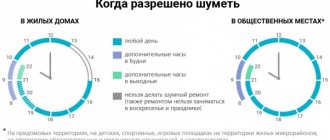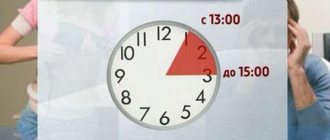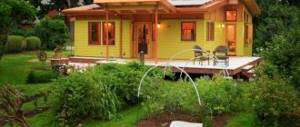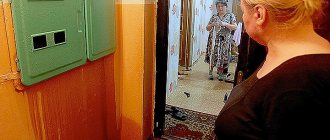In the last article we touched on the topic of cleaning ears with cotton swabs. It turned out that, despite the prevalence of such a procedure, self-cleaning of the ears can lead to perforation (rupture) of the eardrum and a significant decrease in hearing, up to complete deafness. However, improper ear cleaning is not the only thing that can damage our hearing. Excessive noise that exceeds sanitary standards, as well as barotrauma (injuries associated with pressure changes) can also lead to hearing loss.
To have an idea of the danger that noise poses to hearing, it is necessary to familiarize yourself with the permissible noise standards for different times of the day, as well as find out what noise level in decibels certain sounds produce. In this way, you can begin to understand what is safe for your hearing and what is dangerous. And with understanding comes the ability to avoid the harmful effects of sound on hearing.
Noise level in decibels (dB)
Indeed, the normal noise level is often significantly exceeded. Here are examples of just some of the sounds we encounter in our lives and how many decibels (dB) these sounds actually contain:
- Spoken speech ranges from 45 decibels (dB) to 60 decibels (dB) , depending on the volume of the voice;
- Car horn reaches 120 decibels (dB);
- Heavy traffic noise – up to 80 decibels (dB);
- Baby crying – 80 decibels (dB);
- Operation noise of various office equipment, vacuum cleaner - 80 decibels (dB);
- Noise of a running motorcycle, train - 90 decibels (dB);
- The sound of dance music in a nightclub is 110 decibels (dB));
- Airplane noise - 140 decibels (dB);
- Noise from repair work – up to 100 decibels (dB);
- Cooking on a stove - 40 decibels (dB);
- Forest noise from 10 to 24 decibels (dB);
- Lethal noise level for humans, explosion sound - 200 decibels (dB)).
As you can see, most of the noises that we encounter literally every day significantly exceed the permissible threshold. And these are just natural noises that we cannot do anything about. But there is also noise from TV and loud music, to which we expose our hearing aids. And with our own hands we cause enormous harm to our hearing.
Legislation against noise
In our country there is no specific law protecting the peace of citizens during the day and at night. For example, the standards for maximum sound pressures (40 and 50 dB) were established not by civil or criminal proceedings, but by sanitary standards. You will also not find a definition of noise of 70 dB as harmful to health in modern legislation. And people themselves do not respect each other’s needs for rest. Regardless of age (a neighbor can play music loudly at night, even if he is 18 years old, even 40, even 70) and social status. Construction work is also being carried out day and night, bypassing the law with permission received from parliamentary bodies. It's easier to fight with neighbors. At night, you can call the police and prosecute them for disturbing the peace. During the daytime, if someone bothers you and you are sure that you are right, you can call SES or Rospotrebnadzor employees, who are required to measure the noise level and record your complaint.
There are provisions regarding which premises are recognized as residential and the acceptable conditions for living are prescribed therein. There you can find information about violations of sound pressure standards during the daytime, among other things.
In order not to get into trouble when calling the police, you need to understand what daytime and nighttime mean. So, SanPiN norms tell us that daytime is from 7.00 am to 11.00 pm, respectively, the night lasts from 11.00 pm to 7.00 am. in accordance with the Federal Law on the maintenance of normal living conditions, violations of these same norms face administrative liability.
The law also prohibits construction work that violates noise standards at night. If construction is still underway in a residential area, you can contact the municipal authorities or Rospotrebnadzor. Each situation is individual and therefore, before doing anything, consult specialists for advice.
What happens to hearing when exposed to noise?
Aggressive and prolonged noise exposure to the hearing aid can lead to perforation (rupture) of the eardrum. The consequence of this is decreased hearing and, as an extreme case, complete deafness. And although perforation (rupture) of the eardrum is a reversible disease (i.e., the eardrum can recover), the recovery process is long and depends on the severity of the perforation. In any case, treatment of perforation of the eardrum is carried out under the supervision of a doctor, who chooses a treatment regimen after examination.
How to measure?
You can measure using:
- sound level meter (this is a device that picks up noise using a microphone and then records the resulting value using a detector);
- a computer program (a special application for a computer or mobile phone, in which you need to connect a microphone to the computer, but not to the mobile phone);
- Rospotrebnadzor specialists with appropriate equipment (experts use the same sound level meter, after which they draw up a protocol based on the results of laboratory measurements);
- by ear (subjective assessment): this “measurement” is suitable for assessing anthropogenic noise (that is, arising from people - screaming, loud music, etc.), since such sounds are not subject to regulation by law, but are prohibited at certain times (at night , at lunchtime, on weekends and holidays).
The choice of measuring instruments depends on the source of noise exposure.
How to prevent hearing loss?
Now that we know the causes of hearing impairment, we can easily say that if we avoid prolonged aggressive exposure to noise on the hearing aid, then this alone will be enough to prevent hearing impairment. However, it is necessary to give our ears a rest: be in silence, go to places where the noise level is reduced, do not listen to loud music, TV, etc. As a result, the more time we can spend in calm, relaxing places, the more we can restore our hearing, which will serve us faithfully for a long time.
Liked? Share!
Acceptable level
The sanitary and hygienic meaning of noise regulation is to limit the negative impact of sound on humans. The fact is that with excessive exposure, the normal functioning of the central nervous system is disrupted.
Noise in general is vibrations of material bodies and their particles, which are transmitted in any media (liquid, gaseous and solid) . They are divided by height:
- below 16 Hertz (Hz) is ultra-low (infrasound);
- 16 – 20 Hz – sound of the audible spectrum;
- above 20 – ultra-high (ultrasound).
Infra- and ultrasound are inaudible to the human ear, but with excessive exposure, like the sound of the audible spectrum, they negatively affect the central nervous system and vegetation. With prolonged exposure to excessive noise, the following occurs:
- damage to the inner ear;
- changes in skin electrical conductivity;
- discoordination of bioelectrical activity of brain and heart structures;
- changes in vascular reactivity;
- changes in blood pressure;
- the occurrence of sensorineural hearing loss (hearing loss).
In addition to the above, with excessive influence of this factor, symptoms such as:
- irritability;
- cephalalgia (headache);
- decreased memory, concentration;
- increased fatigue;
- sleep and appetite disorders.
An acceptable value ensures the absence of pronounced anxiety and negative changes in the nervous system.
The standard noise level in an apartment according to the law
It is clear that complete sound insulation is impossible in an apartment building (MCD). That is why standards are needed to distinguish what is permissible from what is excessive.
The regulations establishing sanitary standards regarding noise values are as follows:
- The Constitution of the Russian Federation, according to which all people are guaranteed the right to the inviolability of their housing;
- clause 2 art. 17 of the Housing Code regarding the requirement not to violate the rights and legitimate interests of nearby citizens;
- clause 6 of the Rules established regarding the use of residential premises (Resolution of the Government of the Russian Federation No. 25 of January 25, 2006);
- federal law on sanitary and epidemiological welfare of the population (No. 52-FZ of March 30, 1999): establishes that noise levels must meet sanitary requirements (Article 23);
- sanitary standards for living in residential premises are regulated by separate sanitary rules - SanPiN 2.1.2.2645-10;
- Sanitary norms specifically for noise - SN 2.2.4/2.1.8.562-96;
- local regulations established by subjects (for example, Moscow Law of November 21, 2007 No. 45 - Moscow Administrative Code) and others.
Depending on the height of the sound, the norm is from 28 to 79 dB during the day and from 18 to 72 at night (Appendix 3 SanPiN 2.1.2.2645-10). Equivalent levels (harmless to the hearing organ) are 40 and 30 dB, respectively.
Maximum allowed level
According to clause 6.2.1 of the sanitary rules for residential premises, it is permissible to increase the above levels by 5 decibels. Thus, the limit value is 55 dB during the day, and 45 at night (SN 2.2.4/2.1.8.562-96). The same values are established in SanPiN for residential premises.
Each subject adopts its own laws regarding noise (Article 5.1 of Federal Law 52), while the rules are the same, but the time frame for daytime and nighttime may vary.
At what time does the law allow making noise in an apartment in 2020?
Such irritation often results in serious scandals or attempts to surreptitiously ruin the life of a person from whose house various noises are heard. But civilized people solve this problem more calmly, using exclusively legal methods.
Exceptions due to which it is possible to create noise in an apartment at any time of the day, including at night, are the elimination of accidents, emergencies, as well as the performance of work, which will result in ensuring the safety of the residents of the house. That is, if a building suddenly begins to collapse as a result of an earthquake, you are unlikely to be able to complain about the rescuers fixing this problem.
We recommend reading: Time to make repairs in apartment buildings
Background noise in the apartment
The law on silence stipulates not only restrictions regarding the hours when noise is allowed, but also standards for noise levels in residential premises. Acceptable noise is one that does not disturb the peace of neighbors. A similar noise level in an apartment/other residential premises in decibels (dB) is also prescribed in sanitary standards. Each room has its own maximum permissible level:
- in an apartment building: during the day - 55 dB, at night - 45 dB;
- in private homes: during the day - up to 70 dB, at night - up to 60 dB;
- in dormitories: during the day up to 60 dB, at night up to 50 dB;
There is a note in sanitary standards that during the daytime the acceptable value can be exceeded by 5 dB in residential premises, and in areas located close to railway tracks and highways - by 10 dB. To understand how quiet or loud it is, you can compare how many decibels it produces, for example:
- crying child - 78 dB;
- working vacuum cleaner - 75 dB;
- passenger car - 55 dB;
- a person’s whisper is 30 dB, and a scream is 90 dB;
- conversation - 45 dB;
- jackhammer sound - 120 dB.
Each tenant can measure the noise level in their apartment using a special device - a sound level meter. It will show the level in living quarters at the time of measurement. Also today there are special applications for mobile phones that measure noise. If you need to determine the level in order to influence noisy neighbors, you must contact the appropriate service.
Silence law
All necessary measurements are made with special equipment, which displays the result in decibels. As for the indicators that must be observed in residential premises, they are 45 decibels at night and 55 decibels during the day. These restrictions were introduced for certain reasons. It's no secret that loud noise is a serious irritant that negatively affects well-being and can cause severe headaches.
Info
The noise standards that must be observed when living in residential buildings are established at the legislative level. In this regard, if these norms are violated at night, you can contact the local police officer. If the loud noise continues during the day, then it is much more difficult to force neighbors to comply with the law. To do this, it is necessary to conduct a special examination, according to which it will be possible to understand whether the permissible noise threshold has been exceeded.
Separately, it is worth considering the situation when excess noise levels are associated with non-compliance with established standards during the construction of residential premises. Noise means the following:
- Conversations in neighboring apartments;
- The sound of a TV running;
- Other noise exceeding established standards.
Important
If it can be proven that the developer violated the rules for the construction of residential premises, he will be issued a fine.








